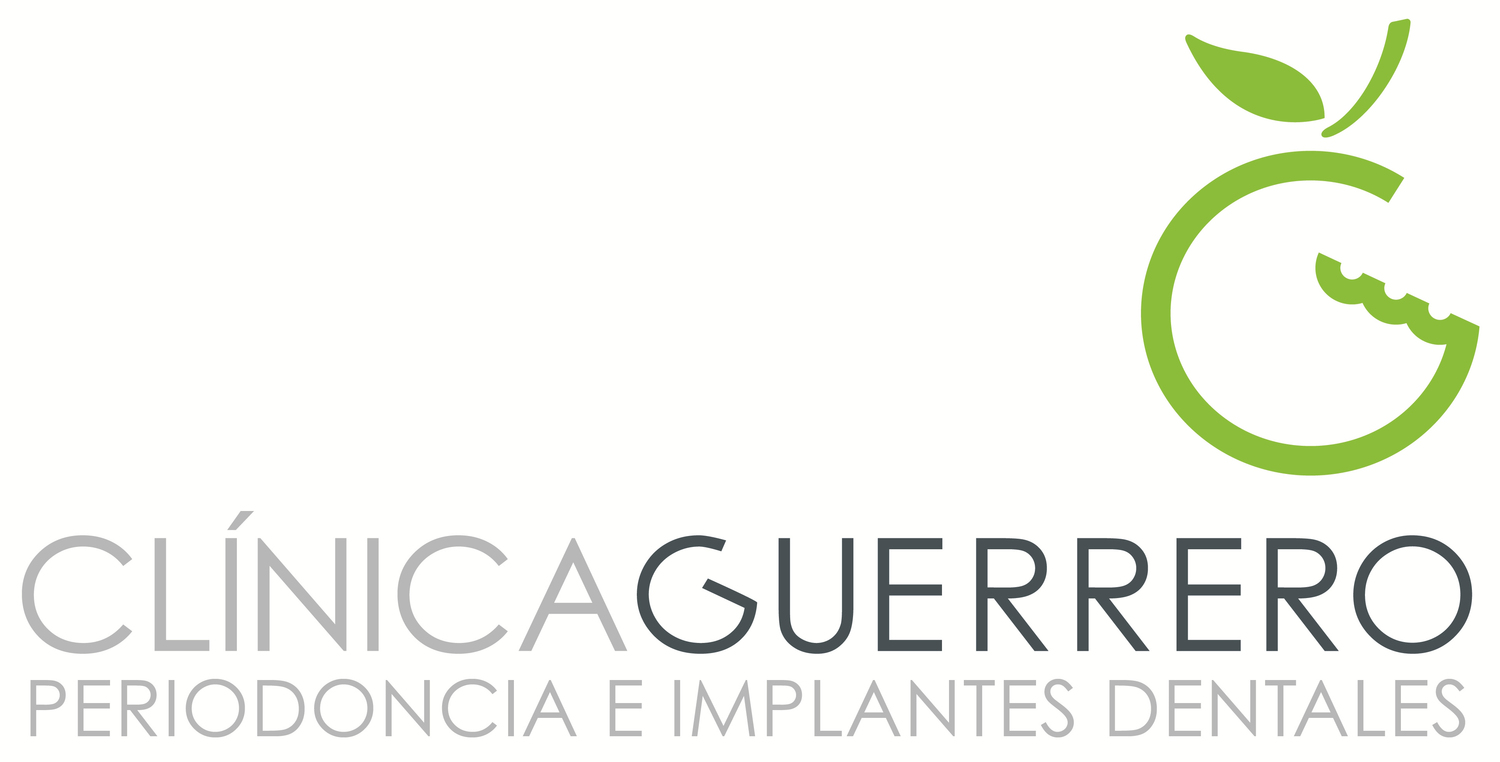Contrary to what most of the population thinks, gum treatment is simple, and dental extractions can be avoided by keeping all the patient's teeth, even in the most advanced cases. This treatment cures the patient, eliminating an infection that can affect the general health of the organism. If you have been told that all your teeth need to be extracted, we recommend that you seek a second opinion: in most cases they can be saved. Keeping all your teeth is much more convenient, less invasive, less complicated, and less expensive than removing all of them for dental implants.
Periodontal treatment consists of removing bacterial plaque and tartar found below the gum. Sometimes this treatment must be accompanied by the simultaneous taking of antibiotics. Treatment usually has two phases. The first phase of this treatment should be done in the least invasive way possible, without surgery, by means of the so-called scaling and root planing. On some occasions, and only in some patients with more advanced problems, a small periodontal surgery must also be done in a second phase to better access these roots and thus be able to remove the deeper tartar. In these cases we can even apply periodontal regeneration techniques to recover part of the structures lost due to infection. However, most cases will not require this surgery.
Once the treatment is finished, the patient will have to attend periodontal maintenance appointments, whose main objective is to prevent the reappearance of periodontitis. These appointments are tailored to the individual needs of each patient, although most of them need to come twice a year.
On the other hand, in those patients who have already lost their teeth, dental implants can be done. There are multiple techniques to place these implants: from the so-called immediate loading (the patient leaves the clinic with fixed provisional teeth) to the more conservative techniques, in which you have to wait a few months before placing the prosthesis, especially if they have been carried out bone regeneration techniques. Each technique has its indication, so each case must be evaluated individually. Dr. Guerrero came into contact with implants at the University of Umeå, Sweden, in 1995, and since then his team has continued to learn from the hundreds of cases treated. Dental implants are not free of problems and are not for life, as was said before. However, the great experience acquired over more than 25 years has allowed us to carry out the simplest, safest and most reasonable procedure for each patient, anticipating possible complications. If you are a candidate dental implant patient you will have the opportunity to discuss all of these treatment options with us to find the one that best suits your needs in the context of safe and rational treatment.
Dental implants work very well, however, sometimes they can also suffer from infections, such as the so-called peri-implant diseases or peri-implantitis (diseases around the bone and gums that surround dental implants). Treatment of these infections is done with the intention of stopping bone loss to maintain the stability of the implants. On the other hand, we also carry out small interventions to cover gum retractions (receding gums), using minimally invasive periodontal microsurgery techniques (using a surgical microscope) which allows us to cover the roots of these teeth that had developed gingival recessions. In addition, we have carry out any procedure that has to do with your gums, from aesthetic remodeling of these, biopsies for mucosal lesions, gum grafts for aesthetic purposes, etc.
Antes del tratamiento de la recesión gingival en un incisivo central inferior: raíz expuesta y presencia de inflamación.
Después del tratamiento de la recesión gingival con injerto de encía: raíz cubierta y ausencia de inflamación.
All surgical interventions are performed under local anesthesia, with the optional support of oral sedation. In the event that intravenous sedation is needed, we perform it in a hospital environment close to the clinic and with the collaboration of a specialist in anesthesia.
Clínica Guerrero has state-of-the-art 3D imaging equipment and complete digital dental radiology, so our patients will not have to go to any radiological clinic to obtain their x-rays.
In addition to the Periodontics and Implants unit, the clinic has a series of special units that handle other types of treatment. The units of Cosmetic Dentistry and Conservative Dentistry, Microscopic Endodontics (root canal treatments and endodontic microsurgery/apical microsurgery/microsurgical apicoectomy), Prosthodontics (ceramic veneers and dental crowns) and Orthodontics (with brackets or aligners) are available both to our referring dentists and to patients who require these specific treatments. In all units we use digital processes through an intraoral scanner to optimize precision and aesthetics.
Therefore, the clinic team will be delighted to receive patients who are interested in making a consultation to find out what would be the most appropriate treatment or prevention procedure for their case. Our management team will give you an appointment (you can request it by filling out the online form in the "contact" section or by calling +34 952212490) during which a meticulous examination of your mouth will be carried out, x-rays of your case, a diagnosis will be issued and a treatment plan will be proposed according to your needs. Subsequently, the management team will provide you with this information in writing and inform you of the organizational aspects of your treatment. Do not hesitate to contact us by e-mail if you need any additional information that encourages you to come to our clinic.



